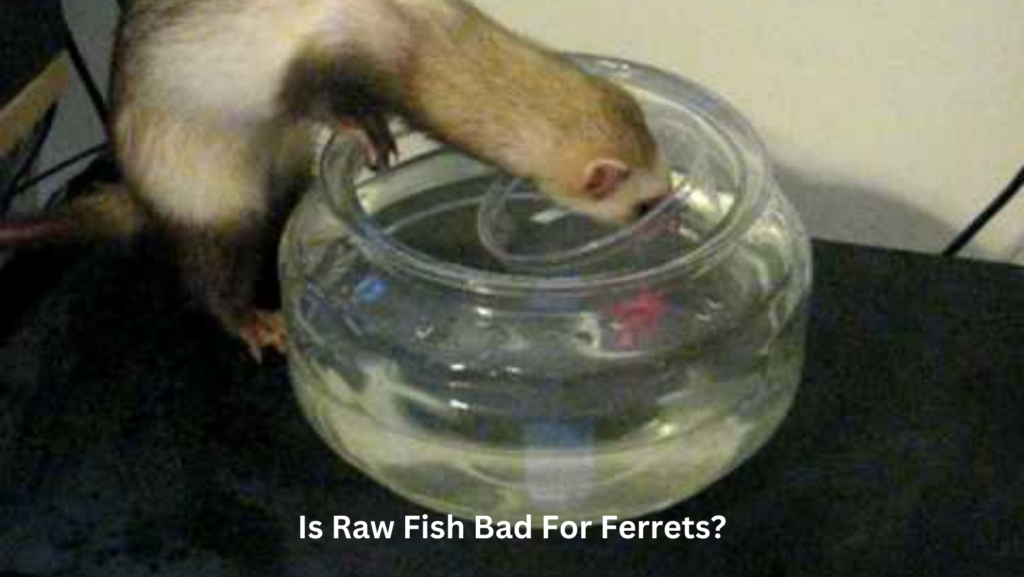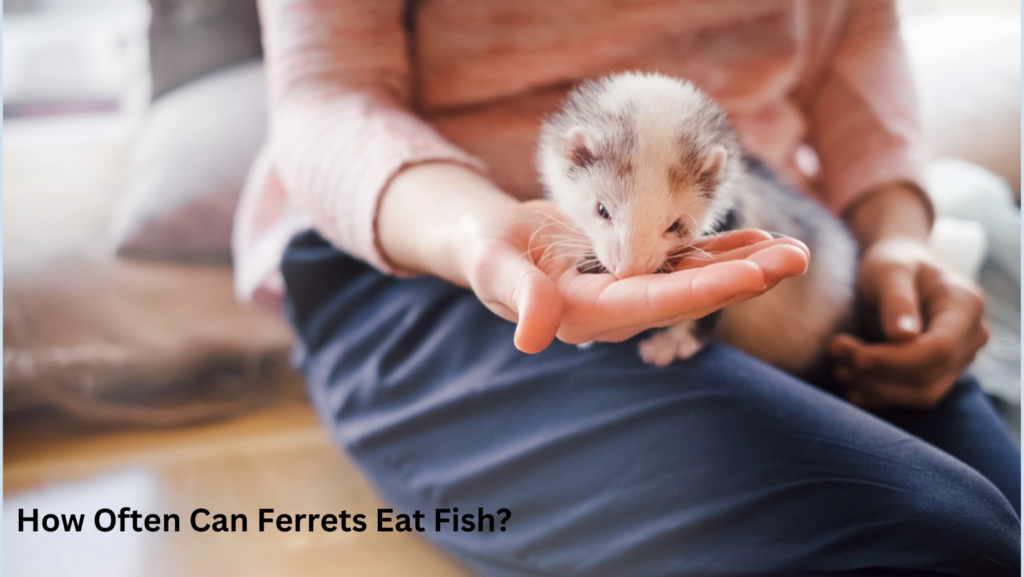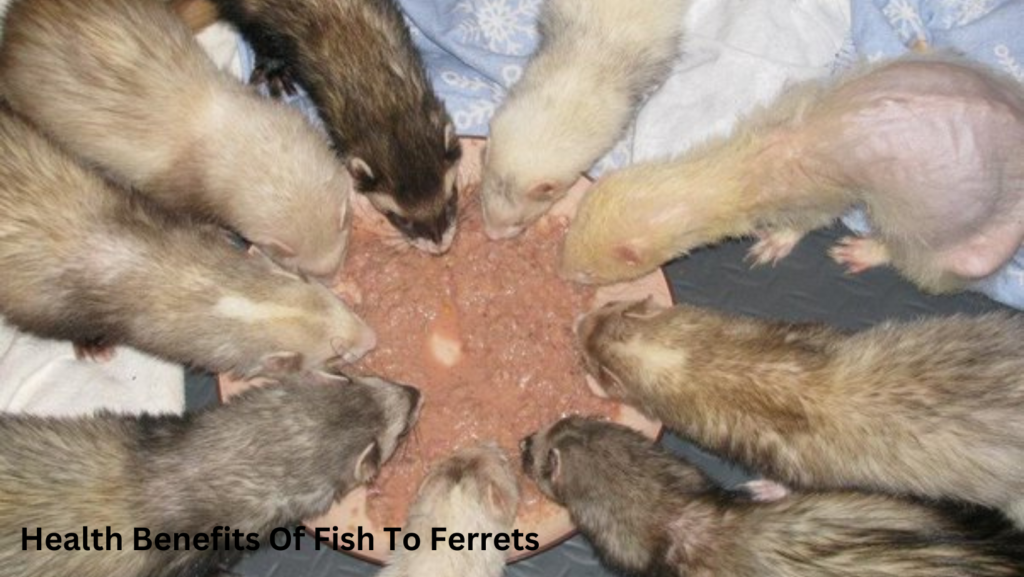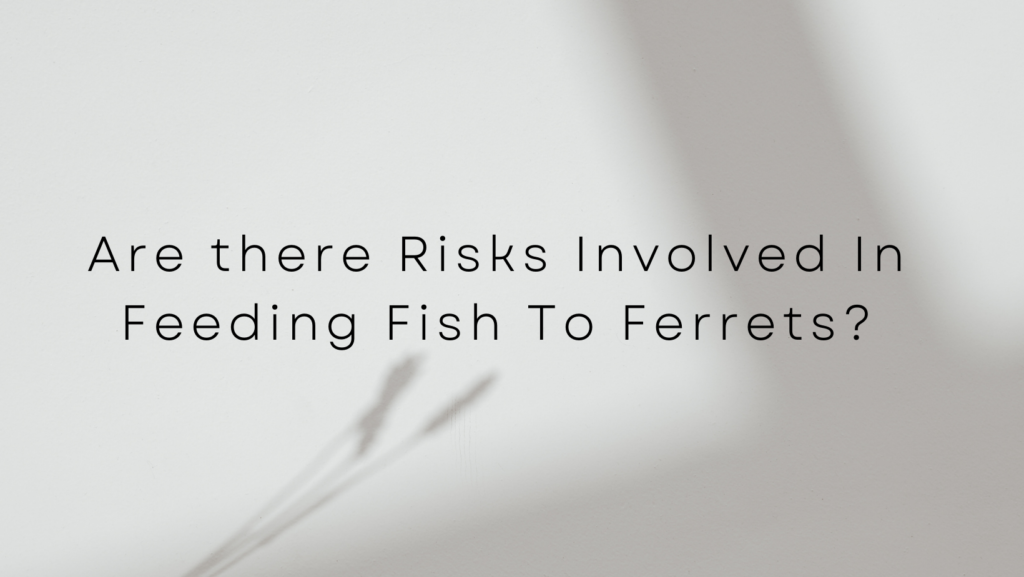There is some debate over whether or not raw fish is bad for ferrets. Some people believe that raw fish can be a healthy part of a ferret’s diet, while others believe that it can be dangerous. There are a few things to consider when making the decision about whether or not to feed your ferret raw fish.
First, raw fish may contain bacteria that can be harmful to ferrets. It’s important to make sure that the fish you’re feeding your ferret is fresh and from a reliable source. Second, raw fish may contain parasites that could make your ferret sick. If you’re considering feeding your ferret raw fish, it’s important to talk to your veterinarian first to make sure it’s safe.

Overall, there is no definitive answer about whether or not raw fish is bad for ferrets. It’s important to do your research and talk to your veterinarian before making the decision to feed your ferret raw fish.
How Often Can Ferrets Eat Fish?
It is generally accepted that ferrets can eat fish once a week. This is because fish is a good source of protein and omega-3 fatty acids, which are essential for ferrets. However, some ferret experts believe that fish should be given to ferrets only occasionally, as it can be a high-fat food.
Can My Ferret Eat Cooked Fish?
Ferrets are carnivorous animals and as such, their diet should consist mainly of meat. However, cooked fish can be occasionally given to your ferret as a treat. It is important to make sure that the fish is cooked thoroughly before feeding it to your pet, as raw fish can contain harmful bacteria.
When giving your ferret cooked fish, be sure to remove any bones, as these can pose a choking hazard.

Health Benefits Of Fish To Ferrets
There are many health benefits of fish to ferrets. Fish is a good source of protein and omega-3 fatty acids, both of which are essential for a healthy ferret diet. Fish also provides essential nutrients such as vitamin A, vitamin D, and selenium.
Fish is a good source of protein and omega-3 fatty acids, both of which are essential for a healthy ferret diet. Fish also provides essential nutrients such as vitamin A, vitamin D, and selenium.
Protein is essential for muscle growth and maintenance, and omega-3 fatty acids are important for maintaining a healthy coat and skin. Vitamin A is important for vision and immune health, while vitamin D is essential for bone health. Selenium is a powerful antioxidant that can help protect against cellular damage.

There are many different types of fish that can be fed to ferrets, but it is important to choose a variety that is high in protein and low in mercury. Good choices for ferrets include salmon, herring, and trout.
Are there Risks Involved In Feeding Fish To Ferrets?
Yes, there are certain risks involved in feeding fish to ferrets. Fish is a known allergen for some ferrets, and can cause an allergic reaction in some animals. Fish can also contain high levels of mercury, which can be harmful to ferrets.
It is important to consult with a veterinarian before feeding fish to a ferret, as some fish may not be suitable for them to eat.
How Often Should Ferrets Eat Fish?
There is no single answer to the question of how often ferrets should eat fish. Some experts recommend that ferrets be given a small amount of fish once or twice a week, while others suggest that fish be given more frequently, perhaps as a daily treat.

Ultimately, the best frequency for feeding fish to your ferret will depend on a number of factors, including your ferret’s individual dietary needs and preferences. If you are unsure of how often to feed fish to your ferret, it is best to consult with a veterinarian or other animal expert for guidance.
Can Baby Ferrets Eat Fish?
Ferrets are carnivores, so their diet should consist mostly of meat. However, they can also benefit from eating fish. Fish is a good source of protein and omega-3 fatty acids, both of which are important for a healthy ferret.
If you’re considering feeding your ferret fish, there are a few things to keep in mind. First, make sure you’re feeding them cooked fish. Raw fish can contain bacteria that can make your ferret sick. Second, avoid feeding them fish that is high in mercury, such as tuna.

Overall, feeding your ferret fish is a safe and healthy option. Just be sure to cook the fish and avoid those that are high in mercury. Your ferret will enjoy the taste and benefit from the nutrients!
Which Fish Can Ferrets Eat?
There is a variety of different fish that ferrets can eat, but some are better for them than others. Fatty fish like salmon and sardines are good for ferrets, as they provide a good source of omega-3 fatty acids.
These fatty acids are important for ferrets’ health, as they help to keep their skin and coat healthy. Other good options for ferrets include trout, whitefish, and herring.
Which Is The Best Way To Serve Fish To Ferrets?
There are a few things to consider when deciding how to best serve fish to ferrets.
- First, ferrets are carnivores and require a diet that is high in protein. This means that fish should be a part of their diet, but it should not be the only source of protein.
- Second, ferrets have a strong sense of smell and can be easily put off by fish that are not fresh.

For this reason, it is important to only feed them fish that is fresh and properly cooked. Finally, ferrets are very active and playful creatures, so they may not want to sit still long enough to eat a whole fish. For this reason, it is best to cut the fish into small pieces so that they can easily eat it.
Can You Serve Fish Bones To Ferrets?
While it is technically possible to serve fish bones to ferrets, it is not recommended. Fish bones can be a choking hazard for ferrets, and they can also cause digestive issues if swallowed. If you do decide to give your ferret fish bones, be sure to supervise them closely and remove any bones that they do not consume immediately.
Read More:
Conclusion
In summary, while raw fish can be a tempting treat for ferret owners due to its high protein content and tasty flavor, it’s essential to approach it with caution. The potential risks, such as thiamine deficiency, exposure to parasites, and the possibility of harmful bacteria, make it vital to consider the overall diet and health of your ferret before introducing raw fish.
If you decide to include raw fish in your ferret’s diet, ensure it’s done in moderation and is sourced from a reliable provider. Always consult with your veterinarian to personalize your ferret’s diet effectively and safely.
Remember, the key to a healthy ferret is a balanced diet that meets all their nutritional needs, paired with plenty of fresh water and regular vet check-ups. By making informed choices, you can keep your furry friend happy and healthy for years to come!
Thank you for reading, and we hope this information helps you make the best decisions for your ferret’s dietary needs. If you have any tips or experiences with feeding raw fish to your ferrets, we’d love to hear from you in the comments below!

